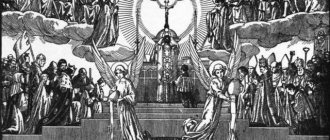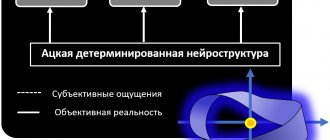Over the course of several thousand years, humanity has come a long way. Many things that were once considered the norm are now considered savagery, barbarism and crime. Modern humanism and its principles are now recognized as natural, having become an integral part of the moral foundations of society.
However, discussions around this concept do not subside. Secular and religious people, liberals, conservatives and defenders of the rights of various minorities continue to argue fiercely about humanity and its criteria. Therefore, first let us turn to the history of the issue.
What are values
Values are ideas that help us act. In this they are similar to plans, goals, fears, intentions, policies, etc. These are all ideas that lead us to action.
Among these ideas, some values relate only to the ways we act, not to consequences (as to plans, goals and fears) or the simple fact of how they work (as to intentions and policies).
There is no specific way to divide values, but there is a partial taxonomy here. For example, there are values associated with attitudes towards other people, with actions, with attitudes towards things.
Advantages and disadvantages
The ideas of humanism, as already mentioned, are interpreted by each ideology and philosophy in their own way, and within each of them it can receive its own set of pros and cons. Let us give their characteristics.
The main advantages of the humanistic worldview:
- conscious renunciation of violence has many positive aspects;
People who choose the path of non-violence will not be able to cause serious physical and mental harm to their children, friends, lovers, parents, and life and interaction with such people will be pleasant and peaceful. - people learn to better understand others, their empathic abilities grow, which facilitates social interaction, reduces the number of conflicts and makes it easier to restore relationships in case of quarrels;
- people better understand the importance of mutual assistance and are ready to extend a hand to their neighbors;
- they are also more understanding of their own needs and desires, realizing that their happiness and well-being matter, as a result, their risk of developing mental illnesses, especially neuroses and depression, is reduced;
- the younger generation is being brought up within the framework of a humanistic approach, which excludes violence and cruelty and welcomes a constructive approach;
- children are taught and raised in such a way that both learning and upbringing bring them joy and pleasure, which increases their motivation and interest in learning;
- Children's needs and desires are respected and they are not required to provide emotional or other services.
Disadvantages of a humanistic worldview:
- Like any idea, humanity changes in the perception of different people. Each idea, if desired, can be distorted, brought to the point of absurdity, adjusted to one’s own desires, or simply misunderstood.
For example, a child who was taught to value others and help them as much as possible, but was not taught how to protect his own boundaries and how to act in potentially dangerous situations, may get into trouble if he wants to help someone.Therefore, it is important for parents and educators to comprehensively consider such issues with their children.
- Since the interpretation of humanism and humanity is ambiguous, even within a community of people who believe that their worldview belongs to the humanistic, conflicts may arise, especially related to pressing social issues related to abortion, euthanasia, and prenatal diagnosis. What is humane for one person is inhumane for another.
The concept of humanism
It can be seen as a worldview or a way of life, as a more or less unquestionable doctrine. Collectively, it represents a set of beliefs and values that are a way of looking at the world—a philosophy by which many people live their lives.
The word "humanism" is used in many different ways - it was coined in the eighteenth century to describe the revival of classical learning during the Renaissance, is associated with the idea of the humanities, and only came to be applied to the current kind of non-religious lifestyle in the early twentieth century. The meaning of words is determined by their use, and the organized humanist movement does not have a monopoly on the use of the word "humanism."
Types of humanism
Different thinkers divide humanism into many different types. Some of these types are known as:
Renaissance humanism
Known as classical humanism; it is a spirit of learning that developed at the end of the Middle Ages with the revival of classical writing and a new faith in the ability of people to determine truth and falsehood for themselves.
Secular humanism (secular)
Secular humanism rejects theistic belief and the existence of a supernatural world. That is, for them, supernatural beliefs cannot be supported by rational arguments, and therefore supernatural aspects associated with religious activity must be rejected.
Religious humanism
Considers himself religious or embraces some form of theism, deism, or the supernatural, without necessarily having any affiliation with an organized religion.
These humanists believe that secular humanism is too coldly logical and ignores the entire emotional aspect that makes people human.
Read more about religion.
Posthumanism
Philosophy of the late 20th century. She attempts to bring Renaissance humanism into the modern technological world and counter accusations of species discrimination (the superiority of one species over another, usually the human species) and anthropocentrism (the belief that humans are the center of the world's existence).
These accusations were aimed at humanitarianism.
Marxist humanism
The interests of the working people are considered the most important; they are opposed to the interests of the “oppressors” and “bourgeois pseudo-humanism.”
This is proletarian or socialist humanism, which is a new leap in the development of humanism and a consequence of the critical processing of humanistic ideas of the past.
Integral humanism
A political philosophy developed in India in the 1960s, in opposition to Western political philosophies (which, according to the founders of this humanism, were preoccupied with materialism and neglected the social well-being of the individual).
The founders saw in both capitalism and socialism imperfect ideas that stimulate greed, class antagonism (the clash of interests of the social classes of society, manifested in class struggle), exploitation and social anarchy.
See also the meanings of Existentialism and Philosophy.
Humanism and morality
One of the key ideas held by representatives of the humanistic movement is that people are part of human nature, moral beings. On the other hand, people are not moral in the sense of goodness, but all of them, with the exception of psychopaths and extremely autistic people, have the ability to think morally and cannot avoid it. What is called morality (the idea of right or wrong) simply arises from human nature.
In fact, humanism is an alternative to religion, which performs the same function as the latter. It allows a person to shape his attitude towards the world.
How does humanism manifest itself?
Humanists argue that there is no evidence that any supernatural force needed or wanted anything from people, communicated anything to them, or interfered with the laws of nature, helped or harmed anyone.
Humanists argue that the welfare of humanity, not the supposed God or gods, is most important. Therefore, humanism aims to satisfy human desires and needs.
Proponents of humanism argue that people can find meaning in life and maximize their long-term happiness by developing their talents and using them to serve humanity.
Humanists believe that this approach to life is more rewarding and leads to deeper and longer-term satisfaction than the hedonistic pursuit of material or sensory pleasures that soon disappear.
Read more about hedonism.
Intelligence
One of the core humanistic values is the importance placed on truth and rational thought as the only proven way to provide knowledge of the facts of the universe.
Religious people will often give excellent or comforting answers, even if they doubt how true they are, or will rely on unquestioned dogma in the face of evidence that it is clearly false. Often critics of the so-called new atheism dismiss criticism of religion by saying that it relies on religion as a set of assumptions, hypotheses that seem meaningless. Instead, these critics say, religion is a felt experience, a relationship, or something else.
It is difficult for humanists to see the difference, except in comparative antiquity, between mainstream religion and "new age" people who accept mindless nonsense about the healing powers of crystals, about feng shui, astrology or alternative medicine and who refuse to test it in controlled trials. For humanists, faith must be proportionate to evidence. Humanists see the value of skepticism when evidence is inadequate and reject dogma, religious, political or any other kind.
Thus, humanists reject ideas and theories that are not reasonable and do not accept concepts that are not supported by adequate evidence. The goal of humanists is to get as close to the truth as possible. They think it's crazy to believe things without enough evidence.
Crisis of humanistic ideas
Even in the heyday of humanistic thought in the 16th-12th centuries, utopias based on the ideas of humanism began to appear. The most striking examples are Thomas More's Utopia (published in 1516) and Tomaso Campanella's The City of the Sun (published in 1623).
The appearance of utopias is the first symptom of a serious illness, which is expressed in the contradictions of the very ideas of humanism, in the absence of answers to important questions.
It is curious that Thomas More himself, a pure humanist, a friend of Erasmus of Rotterdam, in his “Utopia” compares a person with a stallion. We are talking about a description of the Utopians' choice of a groom or a bride.
They must first be shown to each other naked, because even stallions are chosen after removing their saddle and harness. Residents of the island of Utopia cannot afford to choose a life partner only by face; they need to survey the entire field of activity.
In the 19th century, humanistic thought faced a crisis in full force. According to the definition of the Russian philosopher N. Berdyaev:
“Because of the boundlessness and unrestraint of individualism, individuality perishes. /…/ humanism turns into anti-humanism.”
The appearance of Nietzsche with his Zarathustra, who says “I don’t like people,” and the ideas of the superman are a clear example of this. Nietzsche, although he came from humanistic ideas, argued that a person cannot be loved simply because he is a person.
It’s just that a person for him is an animal, therefore, ordinary people are a herd (remember Thomas More with his stallions). The Nietzschean idea of the superman, as it were, brings humanism to its highest point and destroys it , because it denies the main humanistic principle - the intrinsic value of man as such.
Karl Marx, meanwhile, modifies the ideas of humanism to suit his philosophical views. Working on the topic of socialism, he argues that the first priority is the liberation of the proletariat from its oppressors.
The measure of humanity according to Marx is how useful an action is for creating a socialist and communist society. Marx's socialist humanism formed the basis of Soviet ideology.
The role of science
Science is simply the best, almost the only, way to know for sure about the world, but its answers are always provisional, always open to reexamination in the light of new evidence. They are not eternal truths, never irrefutable. Newton's laws were overthrown by Einstein; Einstein's theories cannot account for quantum physics; String theory may undo current ideas.
What science gives is not the truth, but a gradual approach to the truth. Science refuses to accept dogma, refuses to allow anything to be certain, admits that it can make mistakes, but contains its own means for correcting them. Of course, scientists can make mistakes, but this is human error, not an error in the method. And this spirit of open-minded, intelligent inquiry is an important part of humanistic ideas.
Morals and ethics
Human moral instincts are not necessarily a guide to how to behave, but they are a good starting point because they arise from patterns of behavior that promote group survival that have been shaped, developed, and adapted over thousands of years by moral philosophy and practical reasoning.
But circumstances change situations, and specific formulations of morals and ethics may become outdated. People have a responsibility to maintain morality. The purpose of morality, as humanists see it, is not to conform to some model. It exists to serve man.
Moral meaning, along with beliefs, provides the basis for ethics, within which humanists may apply utilitarian ethics or virtue ethics, or may take any number of positions. However, humanistic morality does not go so far as to establish fixed rules. This requires people to make judgments within the circumstances of each situation. This flexibility, this commitment to dialogue and ethical discourse is fundamental to humanistic moral values. They play a big role in the formation of personality.
Thus, humanistic morality gives value and meaning to the individual. The interdependence of the individual and society implies a person's responsibility towards society - individual responsibility for his behavior as it affects society.
Principles and norms
There are many postulates recognized as humanistic. However, due to the strong segmentation of this movement, many of them are disputed or not recognized at all, especially in the context of attitudes towards religion.
Therefore, the best approach here would be a universal approach, according to which the following principles can be distinguished:
- Freedom of development and choice of each individual.
- Respect for the dignity and personal boundaries of all members of society, regardless of origin, social status and views.
- Democratic approach in relationships between people.
- Progress and improvement of society to improve the quality of life and moral climate.
- Development of organizations to protect rights and freedoms.
- The desire for peaceful resolution of conflicts between people and states.
- Recognition of humanity as an integral part of nature and environmental activism.
Spirituality
This concept is quite controversial for humanists, since they reject the existence of a transcendental kingdom, souls and spirits. However, this experience is still very real, even if it is of natural origin. The fact is that the mystical feeling of expansion, union, has no specific intellectual content. In addition, one must take into account the breadth of the humanist tradition, represented by some thinkers who are recognized as representatives of humanism, although this concept did not exist previously. This tradition includes Confucius, Epicurus, the Stoic Marcus Aurelius, David Hume, John Locke, the French philosophers, Thomas Paine, Mary Wollstonecraft, George Eliot. Accordingly, spirituality should be seen as an important part of the humanistic value system.
Rights and dignity
There are a number of other values. The humanist position is that all people have the right to dignity. This statement introduces the key idea that people have the right to life, thereby increasing the value and problems of the universality of rights, the diversity of rights (individual and collective, i.e. groups), their differentiation (civil, religious, intimate). Dignity as a humanistic value opens the door to a variety of human rights. They must become part of world culture, contributing to the formation of a truly human society with rights and dignity equal to all people.
Who are humanists?
A humanist is a person who is interested or concerned about the welfare, values and dignity of humanity. Humanists give people freedom of choice. In their opinion, making their own decisions will lead to progress, personal growth and more positive self-esteem.
They also emphasize that anxiety is a driver of change. Humanists believe that change also leads to a more independent and fulfilling life.
Some of the first humanists, including Poggio Bracciolini, Giovanni Boccaccio and Francesco Petrarca, were collectors of ancient manuscripts.
Italian poet Francesco Petrarch (1304–1374)
Francesco Petrarch is considered the father of humanism. He was the first to declare the paramount importance of man. Petrarch identified human knowledge as the most important dilemma for scientists and philosophers. Petrarch also came up with a new method of comprehension - self-knowledge instead of logic.
Human inner world
This concept is considered by both philosophers and psychologists and teachers. It is considered as a subjective reality, that is, everything that is the internal content of psychological activity is characteristic only of one specific person. This determines the individuality and uniqueness of each person. On the other hand, this concept is of great importance when considering the humanistic values of a person.
The formation of the inner world is indirect. This process is associated with certain external conditions. This situation is explained by the fact that the inner world of a person is a specific form of reflection of the external world, which is characterized by its own spatio-temporal characteristics and content.
Some religious and philosophical concepts believe that a person initially has a certain inner world, and during his life his discovery and cognition occurs. Other ideas about this category are based on a more materialistic basis. According to this point of view, the emergence and development of the inner world occurs in the process of formation of a person as an individual, who is characterized by activity associated with the reflection and development of the surrounding reality.
Renaissance humanism
If in the Middle Ages the church ruled the minds of people, earthly life was viewed from the perspective of preparation for the afterlife, then the Renaissance gave birth to a new person who was interested in the structure of this very real, and not some mythical afterlife.
It was the Renaissance that brought to the world artists, poets, inventors, discoverers and other geniuses, whose names are still known to any child.
The Italians Francesco Petrarch (he is considered the founder of humanism), Dante Alighieri, Boccaccio, Leonardo da Vinci, Raphael, Michelangelo, the English Shakespeare and Bacon, the French de Montaigne and Rabelais, the Spaniard Cervantes, the Germans Erasmus of Rotterdam, Albrecht Durer - all these people were humanists of the era Renaissance.
Humanism arose in Italy in the 14th century as a counterweight to medieval asceticism. It developed under the influence of enormous interest in antiquity as a new philosophical direction, where the spiritual essence of man, his freedom and the right to earthly joys were put at the forefront.
Renaissance humanism placed man at the center of the universe as the most perfect creation of nature, in which the divine principle lies. And the meaning of the existence of this creation is not in atonement for sins, but in the ability to find harmony in earthly life.
Medieval man thought of himself as part of his social group and realized his value through compliance with accepted norms. A Renaissance man is valuable not because of his social affiliation, but because of his activity and personal merit .
It was humanistic ideas that gave birth to a completely new culture, based on cheerful secular themes. Humanism, glorifying the individual principle of man (what is individuality?), turned the anonymous art of the Middle Ages into author's art. Compare how many medieval artists, writers, musicians you can name offhand and how many names come from the Renaissance.
Since humanism presupposed a person’s path to perfection, the sphere of interests of humanists included issues of upbringing and education . An extensive cycle of humanities was introduced into the education system; the approach to educating young people was based on respect for the child’s personality, so spanking was no longer considered a successful pedagogical technique.
Humanistic values in education
One of the goals of modern education is personal development. Spirituality and morality, related to humanistic values, act as the most important, basic characteristics of a person. In this case, the child acts as the center of spiritual life. Spiritual and moral education is an organized, purposeful process, which represents both external and internal (emotional and heartfelt) influence of the teacher on the spiritual and moral sphere of the developing personality. This area is system-forming in relation to the child’s inner world. Such an impact is determined by its complex, integrated nature in relation to the feelings, desires, and opinions of the individual. It is based on a certain system of humanistic values embedded in the content of education. The actualization of this system is determined by a certain position of the teacher.
The humanistic nature of pedagogical activity
The humanistic nature of pedagogical activity
Pedagogical activity
is a special field of activity aimed at transferring to the new generation of humanity the experience accumulated by previous generations. Pedagogical activity is the management of the student’s activities and the process of interaction with him for the purpose of his upbringing and training, his development as an individual. In ancient times, when there was no division of labor, and the purpose of any human activity was reduced to obtaining food, knowledge and experience were passed on to children through labor. As tools improved, the elderly and disabled were freed from hard work, and the community entrusted them with looking after the children and teaching them the basics. Gradually, the amount of necessary knowledge and experience became so great that only the most knowledgeable, experienced and respected members of the community could raise children. These people formed a special social group of educators and youth mentors. With the emergence of the family as a social institution, part of the responsibilities for raising children was assigned to parents. The emergence of writing also influenced the development of pedagogical activity, since writing made it possible to retain knowledge longer than human memory. With the advent of the state, a need arose for mass training and reproduction of various specialists (primarily warriors for the protection and expansion of lands and officials for the state bureaucracy), so education systems began to form in states. Different peoples in different historical eras have developed certain requirements for the level of education, and pedagogical activity has always been a means of preserving and increasing the knowledge accumulated by mankind. The social need for education was reflected in the developing needs of the clan, tribe, society, family, and state. Along with them, the needs of students also developed; new generations of students needed more and more knowledge and skills. To satisfy these needs, educators themselves had to acquire an ever-increasing amount of knowledge and experience, and improve the ways of transmitting it to students. Thus, the development of social and personal needs in education determined the development of pedagogical activity (Fig. 1.1).
Fig.1.1. Formation of teaching activity
The main condition for the emergence of pedagogical activity is the presence of a social need to pass on the experience of previous generations to new generations.
At all times, teaching activity has been perceived as an important mission aimed at serving people and society, having a humanistic nature. The qualities that distinguish a teacher were considered to be deep knowledge, love for children, patriotism, impeccable honesty, and dedication to work. Ignorant teachers became objects of ridicule, and deception and treachery on the part of mentors were perceived as a serious crime. For example, the ancient Roman commander Marcus Furius Camillus, during the siege of the city of Faleria, severely punished a Falerian teacher who brought children from the besieged city hostage to him: he ordered the teacher to be tied up, his clothes torn off, and the children to be given sticks and whips so that they would chase the traitor in shame back. But this fact is an exception.
History has preserved the names of many outstanding teachers who not only made a significant contribution to the development of pedagogical thought and the formation of the teaching profession, but also became an example of humanism. We know about Socrates
from the works of his students Plato and Xenophon.
The legendary philosopher of antiquity did not leave behind any treatises, believing that his calling was to teach others the ability to discover the truth. Please note: do not present ready-made knowledge, but ensure that the student finds it himself! And this is in the 5th century. BC.! But he had students and followers, the most famous of whom, Plato, was the teacher of another great philosopher, Aristotle, the educator of Alexander the Great. In fact, two millennia before the advent of scientific pedagogy, Socrates founded an entire school of developmental education! “Socratic conversations” and “Socratic questions” are used today as scientific and pedagogical terms to denote ways of developing the cognitive activity of students, and methods, the mastery of which is one of the signs of pedagogical mastery. Confucius
lived approximately 551-479.
BC. and became famous as the first professional teacher in China, who from a young age realized his high mission as a mentor to people. He began his teaching career at the age of just over 20 years. Surely this required him to be wise and patient beyond his years. In Chinese culture, Kung Tzu or Kung Fu Tzu (Confucius is the Latinized, European version of the name) is more than a mentor, a thinker and a philosopher. This is the divine Teacher. One of the widespread religions in China is associated with his name: Confucianism. His image was in every ancient Chinese school, and children, coming to study, swore in the face of Kong Tzu to be diligent and obedient. It is believed that Confucius was a descendant of a noble family, but did not have the right of inheritance. Ancient Chinese sources mention his real aristocratic name: Zhong-ni. Kun is a diminutive name or nickname, and Zi just means “Teacher.” Thus, Kong Zi is translated as Teacher Kong. John Amos Comenius
(1592-1670) - Czech humanist teacher, writer, public figure - is rightfully considered the founder of scientific pedagogy.
Comenius was a bishop and one of the spiritual leaders of the Czech Brethren Church (a religious movement that did not recognize the supremacy of the Roman Catholic Church). The Czech (Moravian) brothers advocated the preservation and development of national culture and a national school. In the 17th century, it was almost impossible for the Czech Republic, a small country in the center of Europe, to maintain political independence from its powerful neighbors, so it was important to preserve at least national identity, and for this they needed schools where education would be conducted in their native language, history and culture would be studied of his people. Comenius is one of the greatest teachers in the history of mankind. He substantiated modern teaching principles (visuality, accessibility, consistency, systematicity, strength, etc.), scientifically substantiated the classroom-lesson teaching system, and developed detailed practical recommendations for teachers. There are almost one and a half hundred works by Comenius! These are philosophical treatises, pedagogical works, school textbooks, and plays... Comenius lived a long life, and until the end of his days he retained the desire to benefit people. Love for people is the main motive of the entire life and teaching activity of the famous Swiss teacher Johann Heinrich Pestalozzi
(1746-1827).
Having lost his father early, Johann Heinrich developed compassion for the poor and orphans from childhood. Not very successful studies at school strengthened him in the idea of the need to improve the educational process, make it interesting, and make education accessible to all children, regardless of their origin and the level of income of their family. The beginning of Pestalozzi's teaching career was the opening of an orphanage. It was Pestalozzi who created the first educational institution in which professional teachers were trained. Having become a famous teacher, the head of his own institute, the creator of a new method of primary education, an authoritative public figure and a popular writer, Pestalozzi retained the desire to help the disadvantaged, leaving himself only the essentials for life. The famous Soviet teacher Anton Semyonovich Makarenko
(1888-1939) began his teaching career in 1905 as a teacher at a public (primary) school, after completing teacher training courses. In 1917, when two revolutions took place in Russia, he graduated from the Poltava Teachers' Institute and was appointed head of one of the schools. Makarenko’s pedagogical talent clearly manifested itself in the 1920s and 1930s, when he first led the colony he organized for former street children and juvenile delinquents, and then the labor commune named after F.E. Dzerzhinsky. He used methods of labor and moral education that were new at that time. In the commune, students worked in workshops, practiced self-service, and participated in management. Makarenko did not recognize the passive obedience of children as a good result of education. Discipline must be conscious and active, and obedience must be proactive and active. The school, he believed, had learned well to suppress manifestations of disorganization, but it often happens that noisy and restless children become more useful members of society than quiet ones. In 1988, by decision of UNESCO A.S. Makarenko was recognized as one of the four teachers who determined the development of world pedagogical thought in the 20th century.
Humanistic education
Despite the fact that humanistic values are an integral part of the content of education, their identification does not occur on its own. This process must be purposeful, and the values themselves must be structured, didactically processed, after which the teacher accepts them as a personal value system. And only after that they can be used as a system of value orientations for students, taking into account their age characteristics. Only in this case can they act as the basis for the spiritual and moral education of schoolchildren.
Principles of a humanistic worldview
Humanism became the basis of the worldview of the Renaissance.
Main characteristics of the humanistic worldview:
Interest in human needs
Humanist philosophers comprehended the teachings of the ancient classics, being carried away by the study of the external image and spiritual essence of homo sapiens.
Development of the cult of individuality
Literature, in particular poetry, becomes a significant instrument of human education (poetry was embodied in the unification of all the best that is in a person, and was considered a brilliant form of manifestation of thoughts and feelings at the same time).
Philosophical system
Humanist philosophers began to deny the philosophical and theological basis of the medieval sages; they study a person, taking into account his speech and behavior, which express his temperament and the consequences of his actions.
The intellectual humanist is at the center of humanism as a system; he expresses and protects his originality, separating his beliefs from other philosophers, and tries to present his ideology.
Universality of humanistic values
Humanist philosophers crossed class and estate boundaries and declared the inclusiveness of human values they presented, which, in their opinion, were important for the entire educated society.










